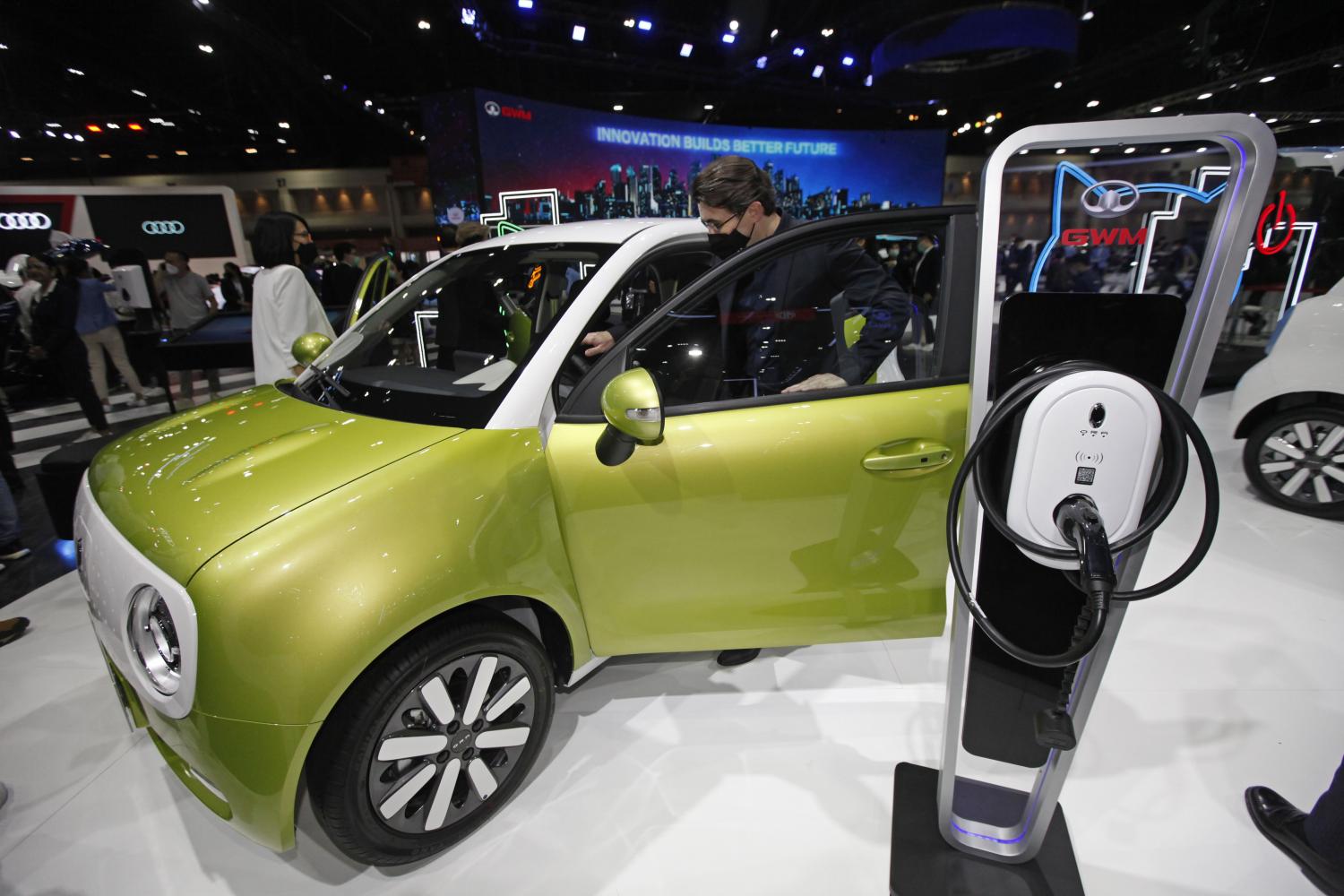
The National New Generation Vehicle Committee has approved investment privileges for electric vehicle (EV) charging and battery swapping businesses under its plan to develop more EV infrastructure in Thailand.
The move is part of the committee's attempts to accelerate demand for EVs after it set a goal to have 50% of vehicles made locally be EVs by 2030, said Energy Minister Supattanapong Punmeechaow, who chaired the committee's meeting on Thursday.
With incentive packages, the committee expects at least 12,000 EV chargers and 1,450 battery swapping stations to be set up nationwide, allowing motorcycle riders whose batteries are running low to swap them for fully-charged ones without having to wait for a full recharge.
The packages include tax holidays, financial support and other non-tax privileges, said Mr Supattanapong.
ฺIn addition to the battery business promotion, officials are working on a plan to amend laws or regulations that may slow or cause unnecessary expenses for the manufacturing of EVs and their components, he said.
The expenses usually involve the process of requesting approval for investments.
The government wants to encourage people to use battery-powered motorcycles and build basic EV infrastructure in the next couple of years, said Mr Supattanapong.
Thailand aims to produce 1.43 million EVs per year by 2030: 725,000 cars and pickups, 675,000 motorcycles and 34,000 buses and trucks.
By 2030, the total number of EVs in Thailand is estimated increase to 6.22 million: 2.93 million cars and pickups, 3.13 million motorcycles and 156,000 buses and trucks.
By 2035, the number of EVs is projected to increase to 18.4 million: 8.62 million cars and pickups, 9.33 million motorcycles and 458,000 buses and trucks. He said these targets are part of the state's attempt to reduce carbon emissions.
The committee also agreed with a plan to prepare acceptable standards for smart grid system development because this could be the future of electricity generation.
Demand for power should significantly increase with EV infrastructure, said the committee, making renewable power generation key for power supply.
The committee also supports creating a new centre specialising in the management of unused or retired EV batteries.